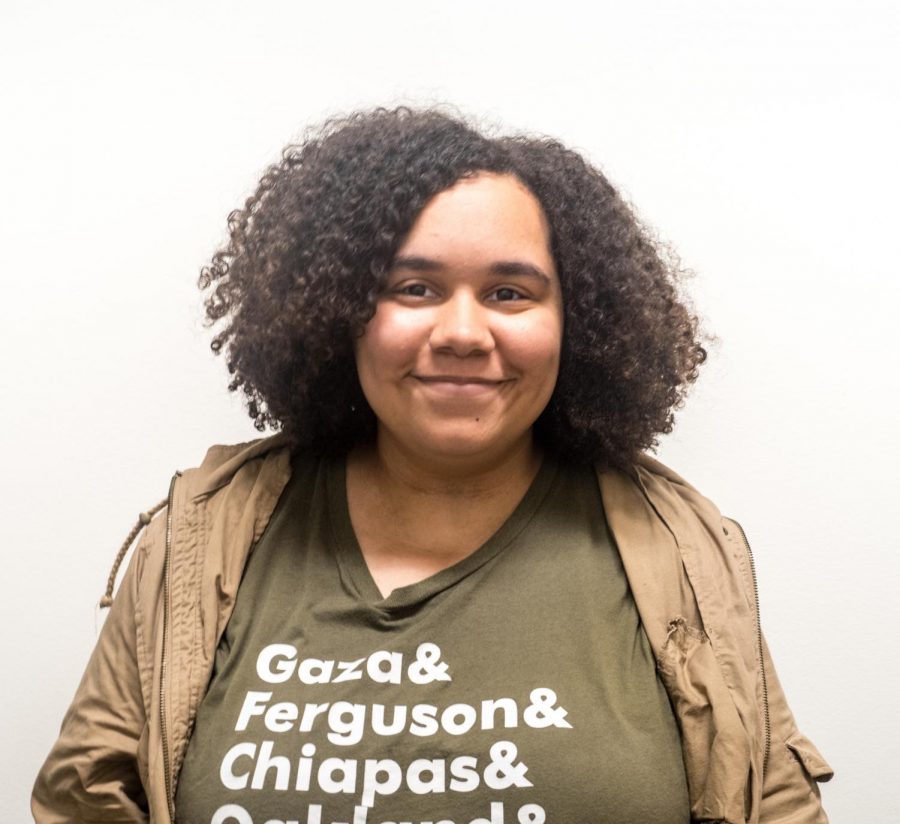Mobilization Is Just As Important As Voting
September 14, 2018
In the past week, I’ve noticed rampant shaming of third-party voters and nonvoters on campus by conservatives and liberals alike. This is based on the foundational belief that the one true place of political power resides is in government.
This narrative is incorrect. Our power doesn’t lie in government buildings. I’m reminded again and again and again that virtually every notable gain toward a more just governance was won through mass mobilization. LGBTQ Rights, Civil Rights and worker’s rights movements, the list goes on. They were achieved by people that refused to be silent or stuck in the capitalist confines of what is deemed acceptable “dissent.”
Our power is in the sound of our sneakers slapping against shallow puddles on Brooklyn streets as New York City Police loom over us, demanding that we return to the sidewalks. Our power is in the fuck you’s we shout until our voices crack and our screams mangle, our voice cracks and our mangled screams, even when we start to doubt that anyone hears us.
Of course, voting is an essential piece of the puzzle. But the pressure to collectively focus our energy on electoral politics after Trump’s election is an ahistorical attempt and a Band-Aid solution. In the past, voting was a weapon that had been wielded against workers to placate them and trap them within the ideology of electoralism. A default example of this is the New Deal. Liberals had this romanticized version of F.D.R. and the New Deal because it’s the one people had been spoon fed.
I attended a socialism conference in Chicago over the summer and a talk given by Dave Peters and Amy Gaidis called “With Friends Like These: The Democrats and Social Movements.” They explained that the New Deal was created not out of the goodness of Roosevelt’s heart, but because it was believed that state intervention was necessary to preserve capitalism.
The U.S. was at the highest point of class struggle in its history, and the government was petrified of revolution. Their hands were forced by the Great Depression and they believed that concessions to labor would smooth out business operations.
F.D.R. actually said it was his administration which “saved the system of private profit and free enterprise after it had been dragged to the brink of ruin.”
While simultaneously peddling New Deal programs, his administration sent troops on striking workers. In 1935, 20 state militias, most under Democratic New Deal governors, fought against strikers in 73 disputes. They also targeted leftists and committed labor organizers with the Taft Hartley-Act.
Because of the New Deal, instead of labor seeing their numbers and victories increase as a means to build their own strength, they saw it as a way of giving them leverage within formal the government. And of course, we know what happened to the labor movement from there.
To reiterate: the workers and radicals involved in the labor movement are responsible for the historical gains made — not FDR. And the electoralism trap that the labor movement was shoved into seems to be similar to the one we are barreling into now.
Say it with me — Voting does not ensure democracy. Respect people’s choices not to aid in placing capitalist candidates in office or to support candidates that they feel don’t represent their needs. Voting, in the context of the two-party system, is nothing more than the minuscule extent to which capitalist powers are comfortable letting us exercise our voice.
Let me be clear: I am not saying that voting is unimportant or that people should abstain from filling out a ballot. Do whatever you want, but recognize that in focusing solely on elections, we miss opportunities to breed real radicalism. Solidarity from those in office is helpful, but not always necessary. Political gains are won through grassroots mobilization. We really do have the power and our forces are continuing to grow exponentially. At this point, it’s a matter of rerouting our energy.
Decolonizing Social Justice is a column that aims to confront issues of social justice at NYU through an intersectional, socialist lens, with the hope that it will widen the space available for marginalized communities to have dialogue. Decolonizing Social Justice runs alternate Fridays.
Aliyah Austin is a sophomore majoring in Social Work and Journalism. Email Aliyah at [email protected]
Opinions expressed on the editorial pages are not necessarily those of WSN, and our publication of opinions is not an endorsement of them.























































































































































